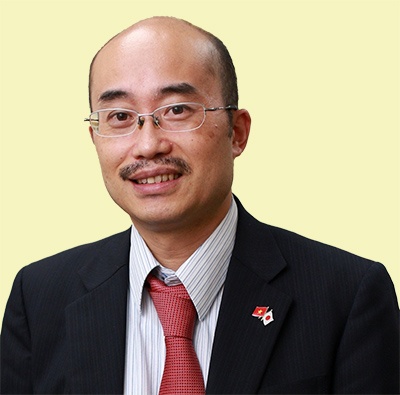Predictability the top goal for Japanese groups in Vietnam
Could you shed some light on the impact of the pandemic on the operations of Japanese companies in Vietnam?
 |
| Hirai Shinji, chief representative of the Japan Trade Promotion Organization in Ho Chi Minh City |
It is true there are some Japanese companies that suspended their operations in Vietnam due to COVID-19, but it is difficult to identify how many companies have been under suspension. The situation is very dynamic, so it seems that even the management company of an industrial park is not fully aware of the current situation of its tenants.
In some provinces, factories are operating under the stay-at-work model, ready to expand their operations if local authorities approve commuting again. In another province, suspended factories are waiting for inspections by the authorities before resuming operations.
Some foreign companies have relocated their orders from Vietnam to other countries to ensure their delivery schedules are met. Do you observe a similar trend among Japanese groups?
The fundamentals of their business activities are predictability. Before the latest wave, there were almost no vaccines available in Vietnam. Although the country was hit by COVID-19 several times, its business environment was highly predictable. Manufacturers in Japan relied on Vietnam’s suppliers more because they were able to continue production as scheduled.
On the other hand, amid the current wave, the landscape became complicated. Manufacturers had been suffering with uncertainties. In order to prevent the spread of infections, in most provinces, only some factories engaged in the stay-at-work model to continue their operations. However, those factories could produce only at 10-50 per cent of their capacity. This is because only a limited proportion of workers can stay in the factory.
Previously, Vietnam was famous for its resilient supply chain, but now some factories, such as those in the Japanese automobile sector, have been forced to stop their production lines because they are unable to source their key parts from Vietnam. When they face difficulties in sourcing a particular part from the country, they have no other choices but to find other alternatives in different countries.
I hope it is a very temporary and limited shift away from Vietnam as lots of Japanese companies have trusted the Vietnamese economic growth potential in the long term.
Ho Chi Minh City is expected to reopen its economy soon. What are your recommendations for the city to reopen and help businesses operate in a safe and undisrupted environment?
It is very good that Ho Chi Minh City has published a draft plan aiming for both the control of the pandemic and economic recovery because the plan helps restore predictability of the business activities. Japanese companies in Ho Chi Minh City are looking forward to seeing a detailed regulation and implementation to be elaborated by the local authorities soon.
However, putting the plan into practice remains challenging because there is still plenty of uncertainty, largely depending on pandemic control and vaccinations. The current number of people who are fully vaccinated seems small, so it is good that Ho Chi Minh City is also adopting to a new step-by-step approach while accelerating vaccinations.
What the stars mean:
★ Poor ★ ★ Promising ★★★ Good ★★★★ Very good ★★★★★ Exceptional
 Tag:
Tag:
Related Contents
Latest News
More News
- Hermes joins Long Thanh cargo terminal development (February 04, 2026 | 15:59)
- SCG enhances production and distribution in Vietnam (February 04, 2026 | 08:00)
- UNIVACCO strengthens Asia expansion with Vietnam facility (February 03, 2026 | 08:00)
- Cai Mep Ha Port project wins approval with $1.95bn investment (February 02, 2026 | 16:17)
- Repositioning Vietnam in Asia’s manufacturing race (February 02, 2026 | 16:00)
- Manufacturing growth remains solid in early 2026 (February 02, 2026 | 15:28)
- Navigating venture capital trends across the continent (February 02, 2026 | 14:00)
- Motivations to achieve high growth (February 02, 2026 | 11:00)
- Capacity and regulations among British areas of expertise in IFCs (February 02, 2026 | 09:09)
- Transition underway in German investment across Vietnam (February 02, 2026 | 08:00)



















 Mobile Version
Mobile Version